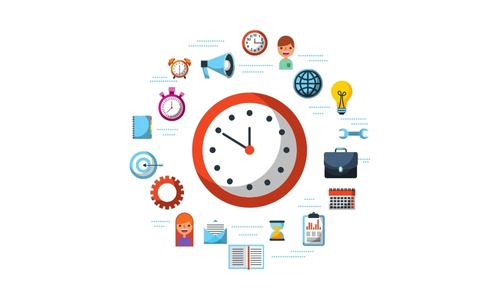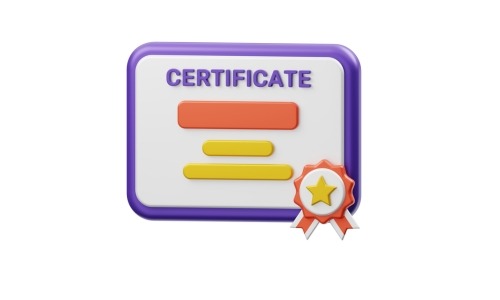There are no items in your cart
Add More
Add More
| Item Details | Price | ||
|---|---|---|---|
5.0 (2 ratings)
Language: English
Instructors: Sri Hari
Validity Period: 60 days
Why this course?
With a programming-based approach, this course is designed to give you a solid foundation in
bare-metal firmware development for ARM-based microcontrollers. The goal of this course is to
teach you how to navigate the microcontroller reference manual and datasheet to extract the right
information to professionally build peripheral drivers and firmware. To achieve this goal, no libraries
are used in this course, purely bare-metal embedded-c and register manipulations.
Still keeping it simple, this course comes in different ARM Cortex-M development boards so that
students can put the techniques to practice using an ARM Cortex-M development board of their
choice. This version of the course uses the STMicroelectronics STM32F407vg which has an ARM
Cortex-M4 microcontroller.
So with that understood, let me tell you...
What you'll learn
● Write firmware using only bare-metal embedded-c
● Learn how to code at the Register level
● Understand the Cortex-M Architecture
● Write Analog-to-Digital Converter (ADC) code using bare-metal embedded-c
● Write PWM code using bare-metal embedded-c
● Write UART code using bare-metal embedded-c
● Write TIMER code using bare-metal embedded-c
● Write Interrupt code using bare-metal embedded-c
● Write SPI code using bare-metal embedded-c
● Write I2C code using bare-metal embedded-c
● Write DMA code using bare-metal embedded-c
● Write Compare, Capture, PWM code using bare-metal embedded-c
● Write Systick code using bare-metal embedded-c
● Write DAC code using bare-metal embedded-c
● Write Watchdog timer code using bare-metal embedded-c
● Master the ARM-Cortex CMSIS standard
● Write DMA code using bare-metal embedded-c
● Build every single line of code from scratch by writing to the microcontroller’s
memory space directly.
● Use No third-party libraries, HAL, SPL, or header files
● Understand and write every single line of code yourself- no Copy/Paste
● Use the debugger effectively to analyze and resolve any bugs
● Develop proficiency in your embedded development skills and confidently take
the next steps
● Define addresses for the different peripherals
● Analyze the chip documentation
● Create registers from the addresses
● Develop the application using LORA Module
● Develop the application FREQUENCY MEASUREMENT
● Develop Smart Street Light system for Real-time application
● Develop a Distance Measurement system using Ultrasonic Sensor
● Advance Concepts such as Floating-point unit
● Create Sine wave using DAC(digital to analog converter)
● Learn how to read & store the sensor data to MCU Sensors used are DHT11,
Moisture Sensor, Relay
● Finally, Develop the Real-time project using STM32 & ESP32
Total Duration: Hrs | Modules: 30
Related Tags: Embedded Systems, IOT, Embedded-C, Cloud, Bare-Metal
Programming
Day 1: Introduction to STM32f407xx, KEIL IDE Setup.
Day 2: Application, Introduction to STM32f407xx, KEIL IDE Setup.
Day 3: Timer Setup and Creating a Precise Delay
Day 4: UART: Datasheet Overview, USART, UART: Interrupts, UART
Day 5: I2C (inter-integrated circuit)
Day 6: SPI (Serial peripheral interface)
Day 7: SPI (Serial peripheral interface)
Day 8: ADC (analog to digital converter), ADC multiple channels
Day 9: Compare, Capture, PWM
Day 10: Smart Street Light
Day 11: ADC DMA
Day 12: ADC UART DMA
Day 13: USART DMA TRANSFER
Day 14: USART DMA RECEIVE
Day 15: SYSTEM TIMER(SYSTICK)
Day 16: Getting into Interrupts
Day 17:Interrupts
Day 18:External Interrupts
Day 19: INPUT CAPTURE
Day 20: FREQUENCY MEASUREMENT
Day 21: FPU & Ultrasonic Sensor Distance Measurement
Day 22: DAC Registers
Day 23: Sine wave using DAC
Day 24: LORA
Day 25: LORA – Receiver & DHT11
Day 26: Moisture Sensor
Day 27: RELAY
Day 28: WDT(WATCHDOG TIMER)
Day 29: STM32 & ESP32
Day 30: IOT Cloud ESP32
After successful purchase, this item would be added to your courses.You can access your courses in the following ways :

 Confirmation Letter
Confirmation Letter






 Certification
Certification